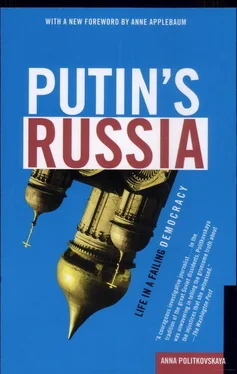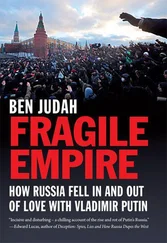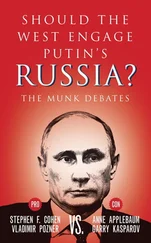Anna Politkovskaya
PUTIN’S RUSSIA
LIFE IN A FAILING DEMOCRACY
She wasn’t charismatic, she didn’t fill lecture halls, and she wasn’t much good at talk shows either. Nevertheless, at the time of her murder in Moscow, Anna Politkovskaya was at the pinnacle of her influence. One of the best-known journalists in Russia and one of the best-known Russian journalists in the world, she was proof—and more is always needed—that there is still nothing quite so powerful as the written word.
The subject of Politkovskaya’s writing was Russia itself, and in particular what she called Russia’s “dirty war” in Chechnya. Long after the rest of the international press corps had abandoned Chechnya—it was too dangerous for most journalists, too complicated, too obscure—she kept telling heartbreaking Chechen stories: the Russian army colonel who pulled eighty-nine elderly people from the ruins of Grozny but received no medals, or the Chechen schoolboy who was ill from the aftereffects of torture but could get no compensation. A hallmark of her books and articles was the laborious descriptions of how she tried, and invariably failed, to get explanations from hostile and evasive Russian authorities. But she had no patience for the fanatical fringe of the Chechen independence movement either. Ideologues on both sides of the war repelled her: What interested her were human stories, particularly when they concerned brave, kind, and honest ordinary people.
Over the years Politkovskaya won scores of international prizes. At home she was threatened, arrested, and once nearly poisoned by the same Russian authorities who refused to respond to her questions. The only official acknowledgment of her status was backhanded: In 2002, when Chechen rebels stormed a Moscow theater, she was called upon to help negotiate the release of hostages. She failed to keep them alive—and then she was murdered too. On the afternoon of October 7, 2006, she was shot to death in the elevator of her Moscow apartment building.
Politkovskaya was not, it is true, the first Russian journalist to be murdered in murky circumstances since 2000, when President Vladimir Putin first came to power. On the contrary, she was the twelfth. Among the worst crimes—all, of course, unsolved—were the murders of two provincial journalists from the city of Togliatti, probably for investigating local mafia; of Paul Klebnikov, the American editor of Forbes magazine’s Russian edition, probably for knowing too much about Russia’s oligarchs; and of a Murmansk television reporter who was critical of local politicians.
Nevertheless, Politkovskaya’s murder marked a distinct turning point. Her assassin made no attempt to disguise his crime as a theft or an accident: He not only shot her in broad daylight, he left her body in the elevator alongside the gun he used to kill her—standard practice for Moscow’s arrogant hit men. Nor could her murder be easily attributed to distant provincial authorities or the criminal mafia. Local businessmen had no motivation to kill her, but officials of the army, the police, and even the Kremlin did. Whereas local thieves might have tried to cover their tracks, Politkovskaya’s assassin, like so many Russian assassins, did not seem to fear the law.
At the time of the murder, no one in Russia expected that anyone would ever be arrested for murdering Politkovskaya. When asked about her death, President Putin himself dismissed her as a “person of no importance”—an indication that Russian investigators are not likely to waste time investigating her murder. But even if the assassin were someday to come to trial, he—or whoever paid him—will have already won a major victory by killing her. As Russian history well demonstrates, it isn’t always necessary to kill millions of people to frighten all the others: A few choice assassinations, in the right time and place, usually suffice. After the death of Politkovskaya, it’s hard to imagine many Russian journalists following in her footsteps.
Even the most ardent fans of Anna Politkovskaya’s writing did complain, on occasion, that her gloom could be overbearing: She was one of those journalists who saw harbingers of catastrophe in every story. Still, it remains difficult for anyone to write about her, now that she is dead, without employing the same foreboding tone that she herself would have used. Her life, and her death, was so much like one of the stories she would have written herself.
Anne Applebaum
MY COUNTRY’S ARMY AND ITS MOTHERS
The army in Russia is a closed system no different from a prison. Like anywhere else, people don’t get into the army or into prison unless the authorities want them there. Unlike other places, once you are in, you live the life of a slave. Armies everywhere try to keep what they do quiet, and perhaps this is why we talk about generals as if they belonged to an international tribe whose personality is the same all over the world, irrespective of which president or state they serve.
There are, however, further peculiarities specific to the Russian army or, rather, to relations between the army and the civilian population. The civilian authorities have no control over what happens in the military. A private, who belongs to the lowest caste in the hierarchy, is a nobody, a nothing. Behind the concrete walls of the barracks, officers can mistreat soldiers with impunity. Similarly, a senior officer can do anything he fancies, anything at all, to a junior colleague.
You are probably thinking that things surely cannot be so bad.
Well, not always; sometimes things are better, but only because some humane individual has called his subordinates to order. Those are the only rays of hope.
“But what about Russia’s leaders?” you may wonder. “The president is the commander in chief, personally responsible for what goes on, isn’t he?”
Unfortunately, once they make it to the Kremlin, our leaders abandon any attempt to rein in the army’s lawlessness and are more likely to give senior officers ever greater power. The army either supports or undermines the leaders depending on whether they indulge it. The one attempt to humanize the army was made under Boris Yeltsin as part of an effort to promote democratic freedom. The program didn’t last long. In Russia, holding on to power is more important than saving soldiers’ lives, and under a barrage of fury from the generals, Yeltsin ran up the white flag and surrendered.
Putin hasn’t even tried. He himself is a former officer. End of story. When he first emerged as a possible head of state rather than an unpopular director of the universally detested Federal Security Bureau (FSB), he started making pronouncements to the effect that the army, diminished under Yeltsin and by its defeat in the first Chechen war, would be rejuvenated, and that all it lacked for its rebirth was a second Chechen war. This assertion is responsible for everything that has followed. When the second Chechen war began, in 1999, the army was given free rein, and in the presidential elections of 2000, it voted as one for Putin. For the army, the present war has been highly profitable, a source of medals and accelerated promotions, and a first-rate springboard for a political career. Generals who leave active service are catapulted directly into the political elite.
How exactly Putin helped the army we shall see in the stories that follow. You decide whether you would like to live in a country where your taxes maintain such an institution. How would you feel if when your son turned eighteen, he was conscripted as “human materiel”? How secure would you feel with an army where every week the soldiers desert in droves, sometimes whole squads at a time, even entire companies. What would you think of an army in which, in a single year, 2002, a complete battalion, more than five hundred men, had been killed not by enemy fire but by beatings, and in which the officers steal everything, from the ten-rouble notes privates receive from their parents to a full tank column? In which all the officers hate the soldiers’ parents because every so often, when the circumstances are just too disgraceful, an outraged mother protests her son’s murder and demands retribution?
Читать дальше






![Stephan Orth - Behind Putin's Curtain - Friendships and Misadventures Inside Russia [aka Couchsurfing in Russia]](/books/415210/stephan-orth-behind-putin-s-curtain-friendships-a-thumb.webp)






